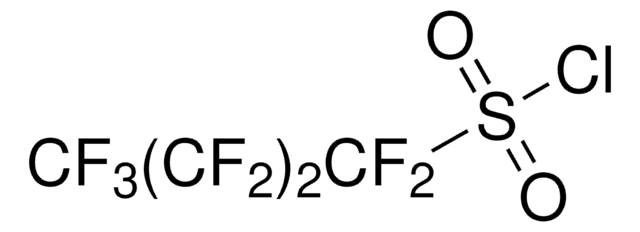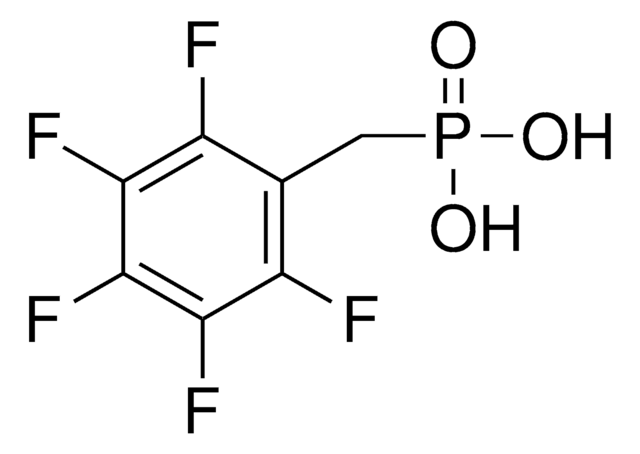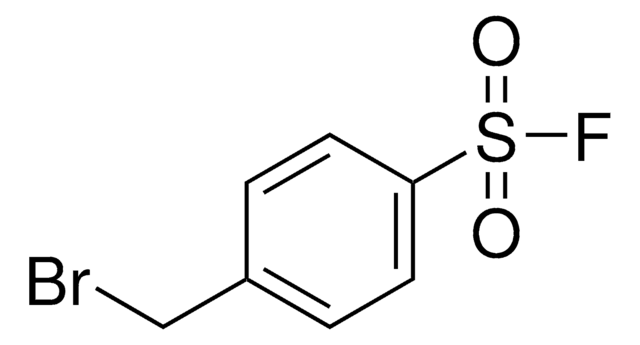103764
Pentafluorobenzenesulfonyl chloride
99%
Synonym(s):
2,3,4,5,6-Pentafluorophenylsulfonyl chloride, Perfluorobenzenesulfonyl chloride
About This Item
Recommended Products
Quality Level
Assay
99%
form
solid
refractive index
n20/D 1.479 (lit.)
bp
210-211 °C (lit.)
density
1.796 g/mL at 25 °C (lit.)
functional group
chloro
fluoro
SMILES string
Fc1c(F)c(F)c(c(F)c1F)S(Cl)(=O)=O
InChI
1S/C6ClF5O2S/c7-15(13,14)6-4(11)2(9)1(8)3(10)5(6)12
InChI key
UOJCTEGNHXRPKO-UHFFFAOYSA-N
Looking for similar products? Visit Product Comparison Guide
General description
Application
Biochem/physiol Actions
Signal Word
Danger
Hazard Statements
Precautionary Statements
Hazard Classifications
Eye Dam. 1 - Skin Corr. 1B
Storage Class Code
8A - Combustible corrosive hazardous materials
WGK
WGK 3
Flash Point(F)
194.0 °F - closed cup
Flash Point(C)
90 °C - closed cup
Personal Protective Equipment
Regulatory Listings
Regulatory Listings are mainly provided for chemical products. Only limited information can be provided here for non-chemical products. No entry means none of the components are listed. It is the user’s obligation to ensure the safe and legal use of the product.
FSL
Group 4: Flammable liquids
Type 3 petroleums
Hazardous rank III
Water insoluble liquid
JAN Code
103764-5G:
103764-VAR:
103764-BULK:
103764-100G:
103764-25G:
103764-1G:
Choose from one of the most recent versions:
Already Own This Product?
Find documentation for the products that you have recently purchased in the Document Library.
Customers Also Viewed
Our team of scientists has experience in all areas of research including Life Science, Material Science, Chemical Synthesis, Chromatography, Analytical and many others.
Contact Technical Service











